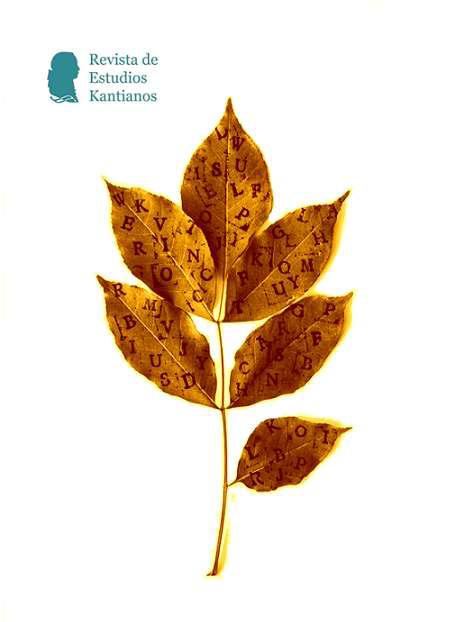Substancia, cambio y materia en las Analogías de la experiencia de la Crítica de la razón pura de Kant
DOI:
https://doi.org/10.7203/REK.4.2.15752 Abstract
Abstract
En el artículo se expone en diez momentos los conceptos de substancia, cambio y materia que aparecen en la Analítica transcendental de la Crítica de la razón pura de Kant, como categorías y esquemas y su funcionamiento en las Analogías de la experiencia. Se muestra cómo la categoría en general y la de substancia en particular en su idealidad transcendental es una estrategia para ordenar y objetivar el mundo fenoménico. Se afirma que también el cambio es necesario a priori y que tanto el cambio como lo permanente son finitos y limitados, así como todos los fenómenos, lo cual nos llevaría a la afirmación de que lo enteramente permanente es la materia, la materia transcendental, pero ésta no es un objeto sensible, de modo que la realidad empírica de la sustancia son los objetos sensibles que relativamente permanecen en el espacio-tiempo. Por último, la materia se presenta constituida por fuerzas, y dado que en ella no hay nada simple, podemos decir que la substancia no es sino un campo de fuerzas.
 Downloads
Downloads
Downloads
Published
How to Cite
-
Abstract827
-
PDF (Español)541
Issue
Section
License
![]()
The authors who publish in this journal agree with the following terms:
- The authors retain their copyright and guarantee to the journal the right to be the first to publish the work and to license it under a Creative Commons Attribution License that allows others to share the work with an acknowledgement of its authorship and the initial publication in this journal.
- Authors may separately establish additional agreements for non-exclusive distribution of the version of the work published in the journal (for example, placing it in an institutional repository or publishing it in a book), with acknowledgement of its initial publication in this journal.
- Authors are allowed and encouraged to disseminate their work electronically (e.g., in institutional repositories or on their own website) before and during the submission process, as this can lead to productive exchanges as well as earlier and greater citation of published work (see The Effect of Open Access).








